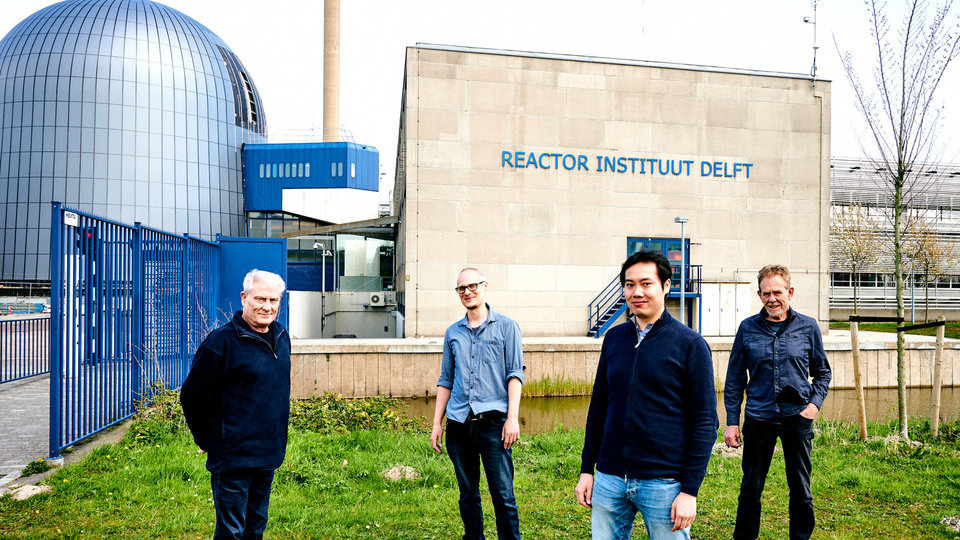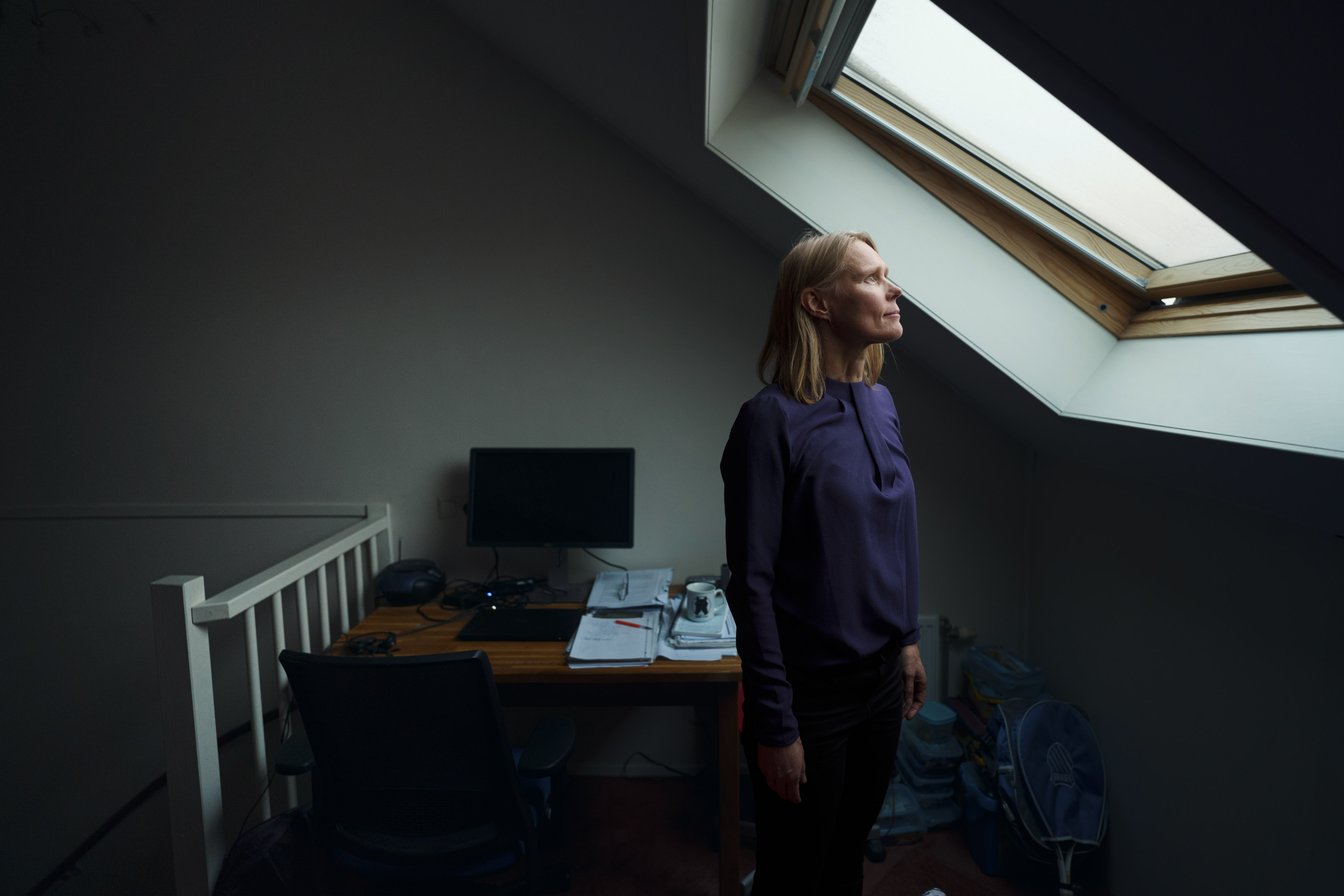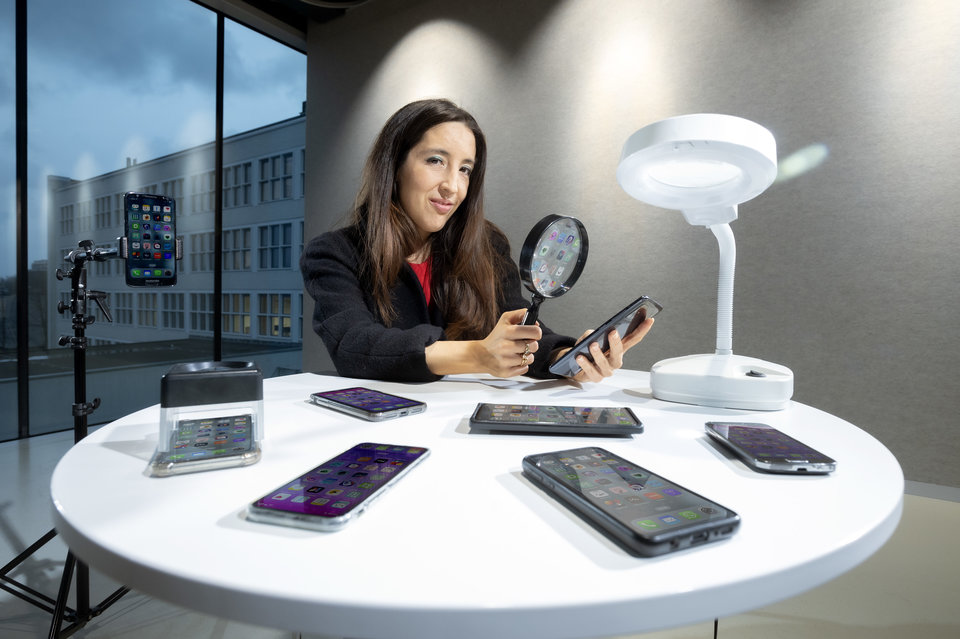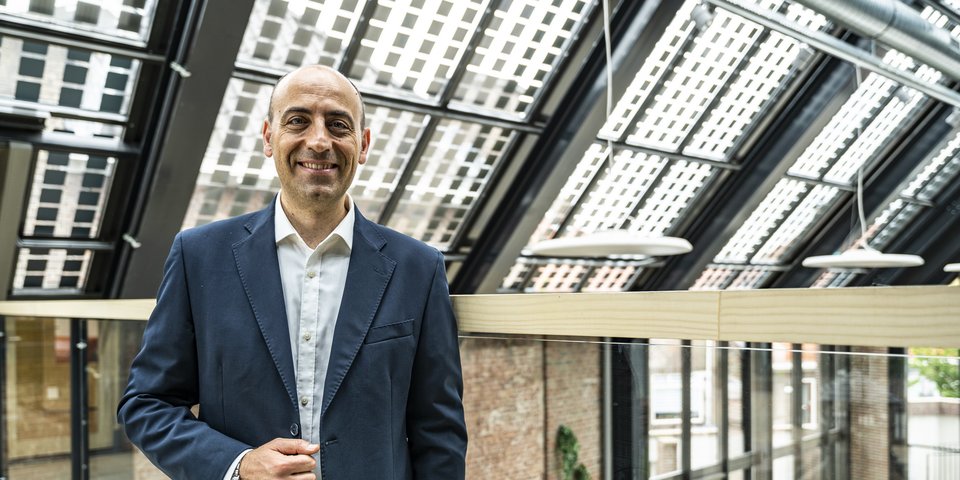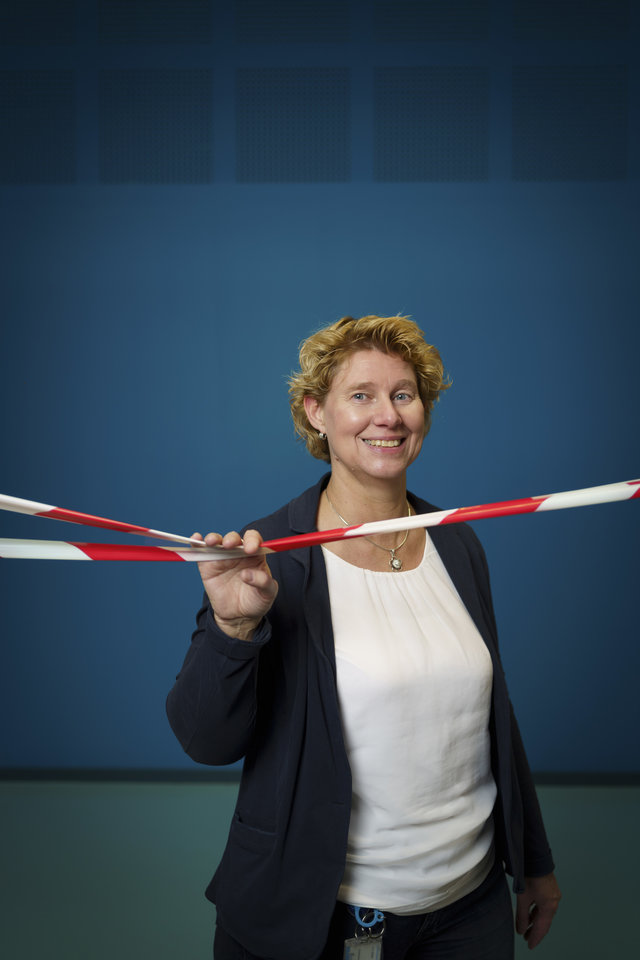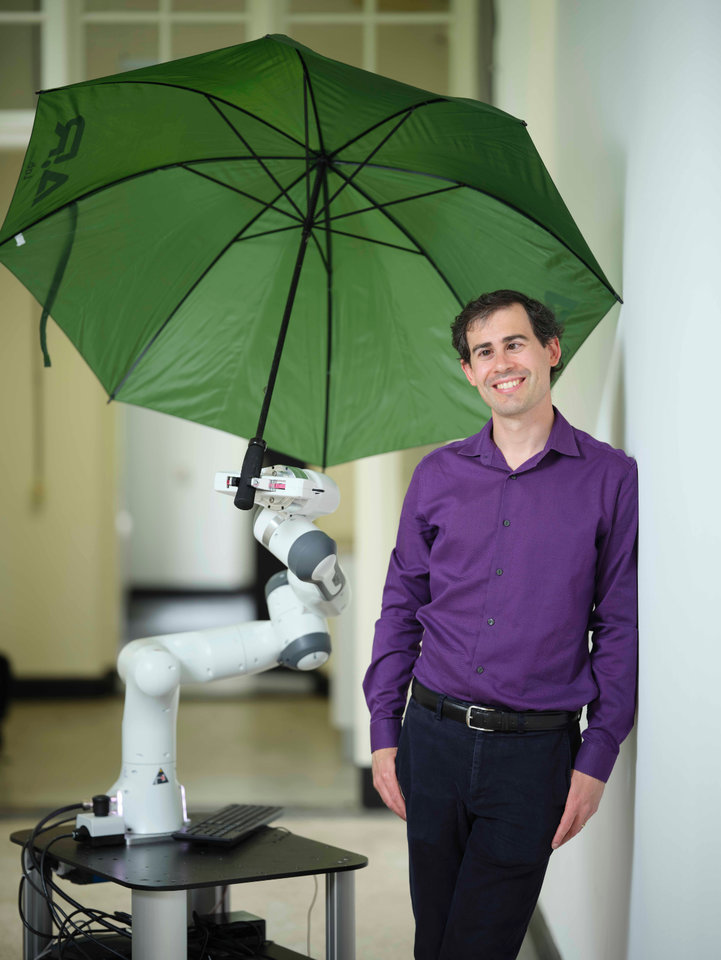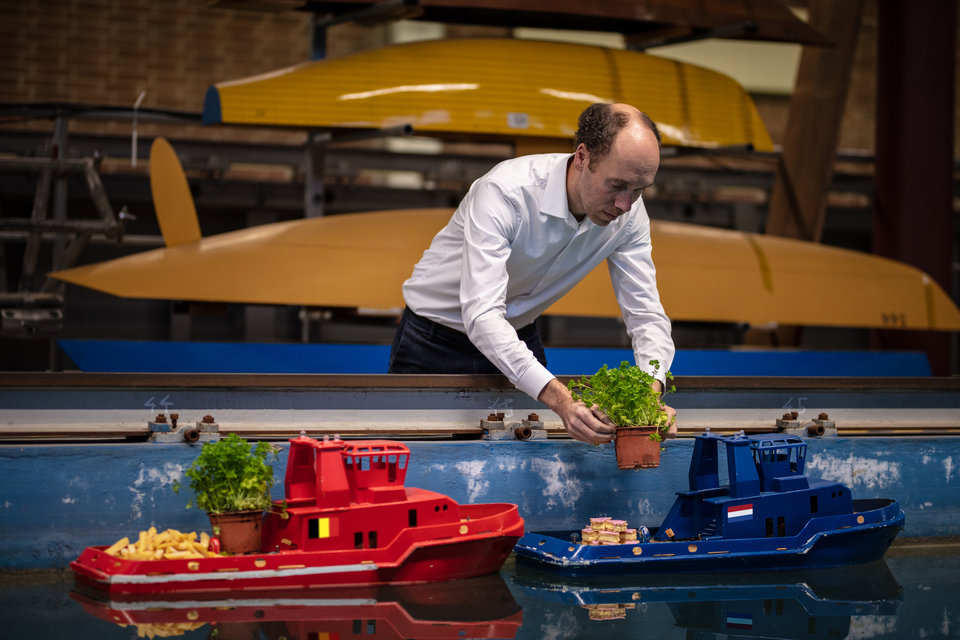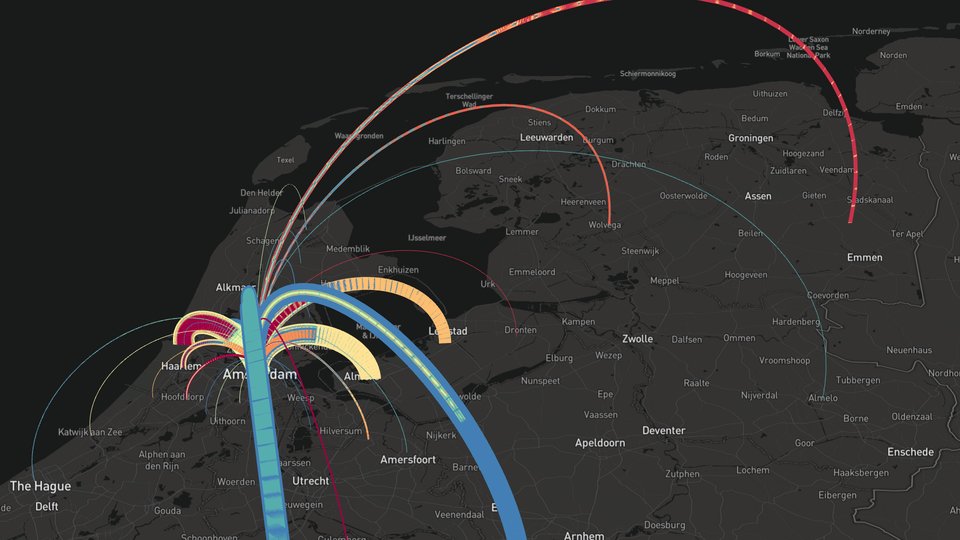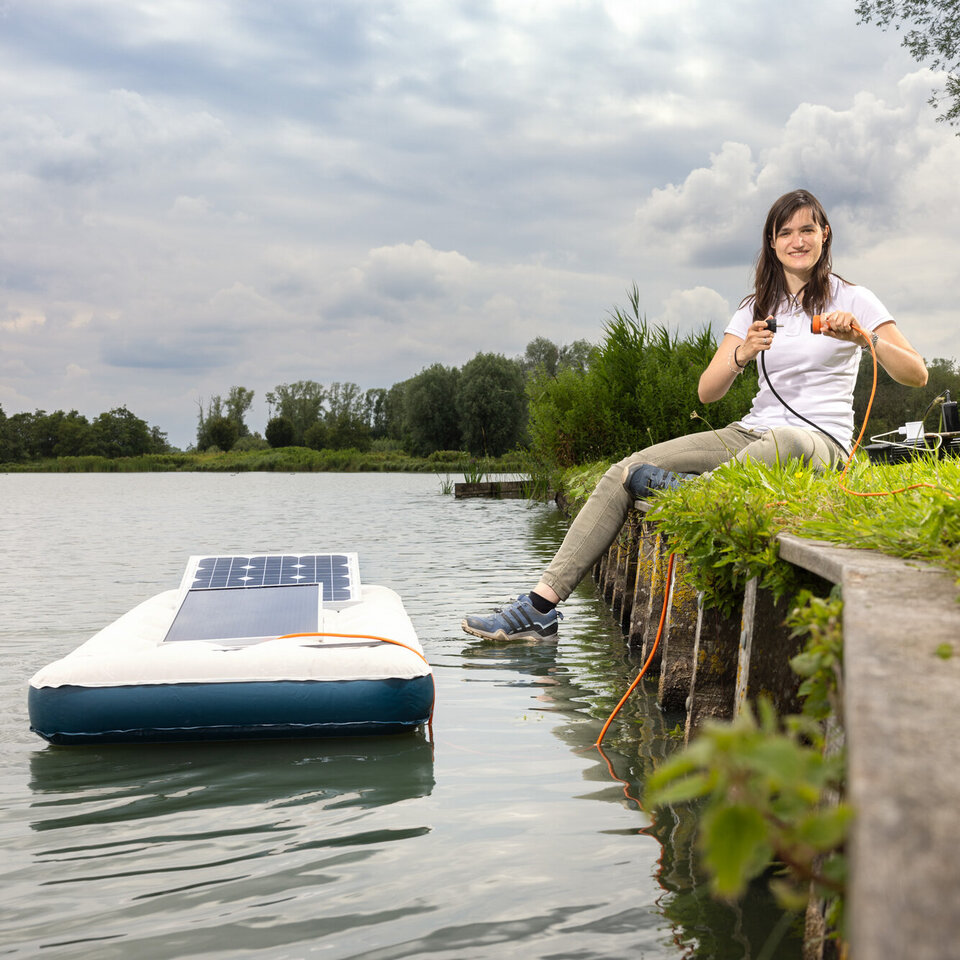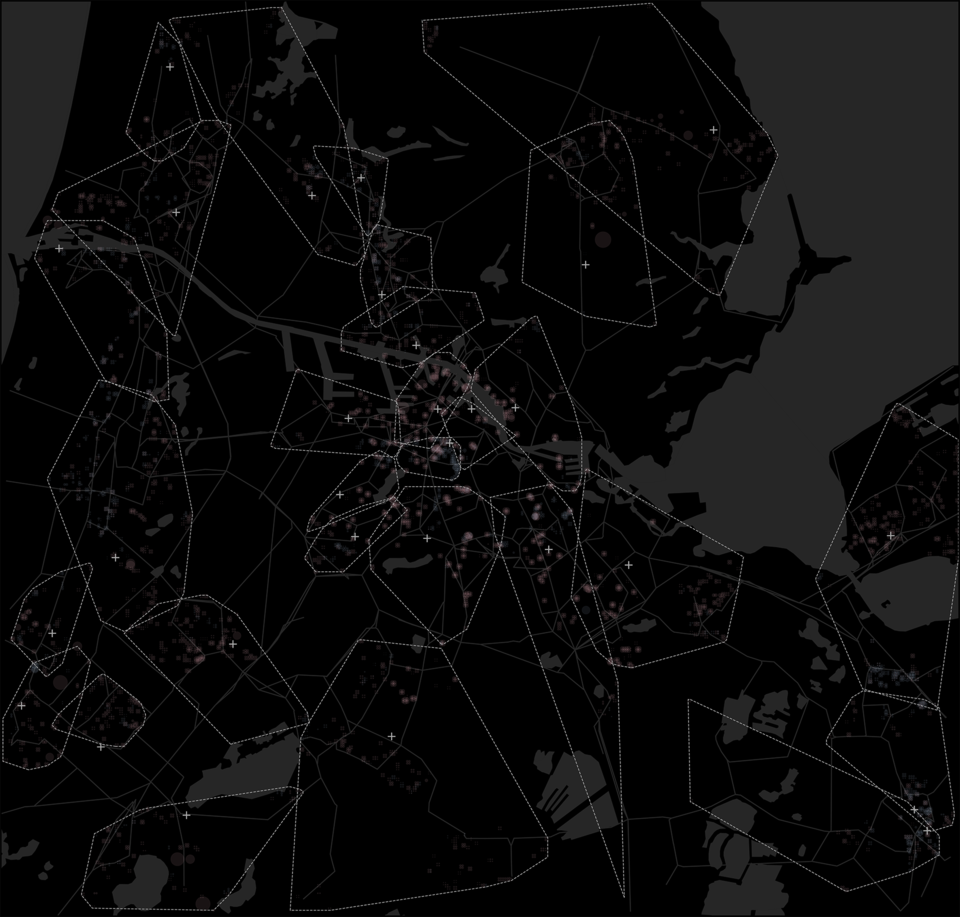Developing an online course normally takes about nine months. So when all education had to be provided online in mid-March, Teaching & Learning Services had to pull out all the stops. Learning Developers coordinator Sofia Dopper reflects on a hectic period, which also gave satisfaction.
She clearly recalls that particular Friday the 13th: ‘I remember advising my team not to put their laptops in their lockers, but to take them home. We haven’t been back since,’ Sofia Dopper says. ‘We didn’t see that coming. I wasn’t thinking about it much yet in January and February. Although there were central and local crisis teams, their discussions mainly concerned whether or not international students would be allowed to return after the Christmas Vacation. It still all seemed far away to me. In March, I was suddenly called to all sorts of meetings: we had to help organise things to enable all lecturers to teach online and, shortly after that, we had to work from home ourselves too. Only then did I realise the impact it was going to have.’
A proliferation of tools
‘We rushed to set up a website for lecturers: Remote Teaching and Learning. There we gathered as much information as possible, such as a step-by-step plan to switch to distance learning. At first, it was just making do with what you had. Was it all good online education? Probably not, but the aim was to enable education to continue. TU Delft didn’t have all the necessary resources yet at that time. Teachers had to figure out what they could use themselves, which led to a proliferation of tools. That didn’t matter. Teachers needed to find what worked for them and what they felt comfortable using. This was arranged better later on. New tools were purchased and a working group was set up to give advice on matters like privacy. Some software could even sell your students’ data, which is something you really don’t want.’
Rapid response
‘At first, our focus was mainly on the provision of information. Vera Schepens’ support team provides first-line support for Brightspace and educational tools. During the first few weeks, they spent many hours answering questions from lecturers, and the help desk stayed open on weekends too.’ The SOC mailbox of the Learning Developers was never empty either. SOC stands for ‘Rapid Educational Consultation’ (Snel Onderwijs Consult), but the response speed was increased even more. ‘Lecturers could already come to us to talk about educational development, but now we could no longer say: we’ll get back to you in a few days. Lecturers were under stress and had to make arrangements quickly. So we tried to respond as soon as a question was received. I had made a schedule to ensure that three learning developers were available every day. This enabled us to provide advice to many individual lecturers.’
I feel that we have been able to support lecturers very well, in a period that has been very difficult for them
Lecturers had all sorts of questions. ‘How can I have 300 students work together in groups in breakout rooms in Zoom? How can I administer an exam online safely and without fraud? How can I keep my students engaged? Some lecturers didn’t enjoy their work at all any more, as they were no longer able to do what they were good at. That wasn’t easy.’ Nevertheless, she prefers to focus on the positive aspects. ‘Personally, I feel that we have been able to support lecturers very well, in a period that has been very difficult for them. The close cooperation with the support team was also very positive. If they received a question of an educational nature, they would pass it on to us. And we did the same thing the other way around with typical support questions. This gave us a much better understanding of each other's work.’
Nine months of development
The work was quite different before the crisis, of course. ‘I am coordinator of the learning developers, a team within Teaching & Learning Services in Education & Student Affairs (ESA). We support lecturers in the improvement of education in faculties. For example, we organise the University Teaching Qualification (UTQ); we employ a whole group of trainers who provide the didactic courses for that. We also do course development, which is the process we go through with lecturers who want to redesign and improve a course. In addition, we provide tailor-made advice to the faculties on topics such as curriculum revision or reviewing final attainment levels, etc. They can hire us for this on an hourly basis or through secondment. I’m a process manager for course development and those special tasks.’
‘A large part of my team is developing courses for the Extension School, which is online education for an external target group. This takes a lot of time: making a design, developing materials and incorporating it in the platform. It is a lengthy process; it takes us about nine months to create such a course. Because we have so much experience with online education, we received a lot of requests for help in March. And, of course, we wanted to make that expertise available to all campus lecturers.’
Online role play
‘We also put our own training programmes online as soon as possible, a process that was led by Danika Marquis, UTQ coordinator and process manager Teacher training. This included the UTQ training programmes, didactic programmes for doctoral candidates in the Graduate School, and training programmes for Teaching Assistants. I am really proud that we have been able to set up such skills training programmes. Take a course like SUPERVISE, for example, which is part of the UTQ. It is about providing individual supervision to graduating students and doctoral candidates. It includes role play and peer-to-peer learning, but try doing that online. And yet, it works surprisingly well,’ Dopper explains. ‘Later, we started organising webinars on topics that were relevant at the time, such as remote assessment. We still do that: there is a webinar on a relevant topic every Wednesday morning. All of the webinar recordings can be viewed on the Teaching Academy website.’
Blended education – a well-considered mix of online and face-to-face workflows – should become the standard at TU Delft
‘In the summer, once the dust had settled a bit, we started looking at how we could help lecturers create well thought-out online education. We hoped they might have a little more time to think about quality at that time. It also looked like the situation would continue for quite some time. So we developed a course for that, which lecturers can take at their own pace, with templates and examples to create a good design for an online course. The course was also intended to share our expertise with educational support staff in the faculties. Because although many lecturers know where to find us, it is sometimes easier to contact someone in your own faculty.’ So the hard work continued during the summer vacation. ‘Only a few people from my team went on holiday, but you couldn’t travel to a lot of places anyway.’
Work-life balance
Looking back, those first few months were the hardest. ‘Many of my colleagues have young children and weren’t able to work their normal hours because of home schooling, or were forced to work in the evenings. That put extra pressure on them and on the rest of the team. A lot of people got sick early on as well, but because not many people were being tested for coronavirus at the time, you didn’t know what it was. I find it quite a challenge to keep in touch with what is going on in the department. You can’t just pop into someone’s office for a quick chat or arrange something with a few people.’
‘For me personally, working from home was okay, my children are older. But separating work from private life is becoming more difficult. Before you know it, you’re spending the whole day sitting at your computer in online meetings. So now I make a conscious effort to include breaks in my schedule. But apart from that: at least we have work and what we do is really useful. That's what I liked about it.’
Initial hesitations are gone
Dopper is hopeful that good things will come out of the current situation. ‘Blended education – a well-considered mix of online and face-to-face workflows – should become the standard at TU Delft. Every lecturer should think about how technology can support students in their learning processes in the subject concerned. If you put what you can online, you will have a lot more quality time with your students. By now, all teachers have more experience using digital tools: teaching materials have been digitised, videos have been made, etc. So the initial hesitations are gone. When we’re allowed to return to campus, I hope we can take big steps towards blended learning. The crisis can make a positive contribution to this.’

